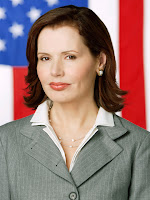Though often overlooked, there are many forms of slavery still current in the world today. A majority of the films made about modern day slavery focus on the trafficking and enslavement of women for the sex trade. Sex trafficking is viewed as more scandalous and attention grabbing than issues such as migrant workers.
The film, Human Trafficking explores the extensive international network of the sex trafficking industry. The movie revolves around four intersecting character story lines. A sixteen-year-old girl from the Ukraine named Nadia thought she was getting her big break as an international supermodel and left for New York without the permission of her protective father. Helena was a single mother from Russia who was under the impression that she was dating her abductor, she left for a weekend getaway and never came home to her little Ivanka. Twelve-year-old American tourist, Annie Gray, is abducted in Manila, Philippines while shopping with her mother. Kate Morozov is an Immigration and Customs Enforcement (ICE) agent with emotional involvement in the issue of sex trafficking, she struggles to expose the worldwide network that has enslaved these girls.
Most of the young women that are abducted into sex trafficking are international, however the greatest market for this heinous industry is the United States. According to the film, even the “business” that takes place in other countries is to the advantage of American “customers”.
 The U.S. Department of State released a Trafficking in Humans Report in 2007 which stated that "Sex trafficking would not exist without the demand for commercial sex flourishing around the world. The U.S. Government adopted a strong position against prostitution in a December 2002 policy decision, which states that prostitution is inherently harmful and dehumanizing and fuels trafficking in persons. Prostitution and related activities—including pimping and patronizing or maintaining brothels—encourage the growth of modern-day slavery by providing a façade behind which traffickers for sexual exploitation operate. Where prostitution is tolerated, there is a greater demand for human trafficking victims and nearly always an increase in the number of women and children trafficked into commercial sex slavery. Few women seek out or choose to be in prostitution, and most are desperate to leave it. A 2003 scientific study in the Journal of Trauma Practice found that 89 percent of women in prostitution want to escape prostitution but had no other options for survival."
The U.S. Department of State released a Trafficking in Humans Report in 2007 which stated that "Sex trafficking would not exist without the demand for commercial sex flourishing around the world. The U.S. Government adopted a strong position against prostitution in a December 2002 policy decision, which states that prostitution is inherently harmful and dehumanizing and fuels trafficking in persons. Prostitution and related activities—including pimping and patronizing or maintaining brothels—encourage the growth of modern-day slavery by providing a façade behind which traffickers for sexual exploitation operate. Where prostitution is tolerated, there is a greater demand for human trafficking victims and nearly always an increase in the number of women and children trafficked into commercial sex slavery. Few women seek out or choose to be in prostitution, and most are desperate to leave it. A 2003 scientific study in the Journal of Trauma Practice found that 89 percent of women in prostitution want to escape prostitution but had no other options for survival." 













